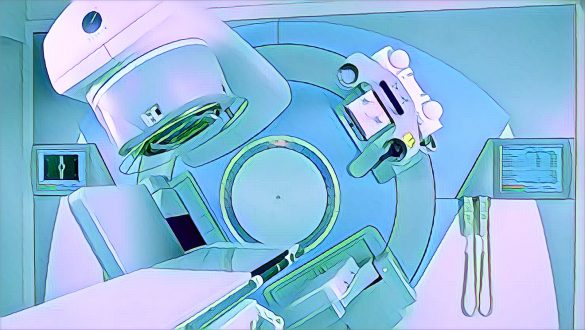Zimbabwe’s Ministry of Health revealed a troubling reality: the country has only one functioning radiotherapy machine to treat its cancer patients. This situation has prompted urgent calls for additional resources and infrastructure to address the growing cancer crisis.
According to the Global Cancer Observatory, Zimbabwe reported 16,083 new cancer cases and 10,676 deaths in 2020 alone. Common cancers include cervical, breast, and prostate. Radiotherapy, used in treating at least 50% of all cancer cases, is critically under-resourced in Zimbabwe.
Jasper Chimedza, the Health Ministry Secretary, disclosed this alarming information during a parliamentary committee meeting on health and child care. The sole operational machine is privately owned and located in Newlands, serving both the public and private sectors. Chimedza emphasised that this is far from ideal and that patients should not have to travel long distances for treatment.
“We need more cancer machines at provincial hospitals to ensure patients can access treatment locally,” Chimedza said. He noted that while existing machines are not outdated, they require software updates and maintenance. The ministry plans to procure new machines for provincial hospitals, reducing travel burdens for patients.
Chimedza highlighted the ministry’s goal to equip all provincial hospitals with radiotherapy machines, including the upcoming Lupane Hospital in Matebeleland North. This expansion aims to decentralise cancer treatment and improve accessibility for patients across the country.
Max Hove, the Director of Pathology Services in the health ministry, echoed these sentiments. He pointed out that Zimbabwe has the capacity to train local professionals to diagnose cancer in laboratories. However, a significant challenge lies in maintaining the equipment, which is manufactured abroad.
“Our medical equipment is made in Switzerland, and engineers must travel here to service it,” Hove explained. This dependency on foreign expertise has long frustrated health stakeholders, who have urged authorities to develop local technical skills for machine repairs.
Over the years, stakeholders have consistently called for a local technician to repair cancer machines, reducing reliance on international engineers. This would not only save costs but also ensure quicker response times for equipment maintenance.
The health ministry’s revelations have sparked a broader conversation about the state of Zimbabwe’s healthcare infrastructure. Many are questioning how the country will handle the increasing burden of cancer with such limited resources. The government’s commitment to expanding radiotherapy services is a step in the right direction, but the implementation will be crucial.
Cancer patients and their families are particularly affected by these limitations. The need to travel long distances for treatment adds emotional and financial strain to an already challenging situation. By decentralising cancer care, Zimbabwe could significantly improve the quality of life for many patients.
Source: Newsday


